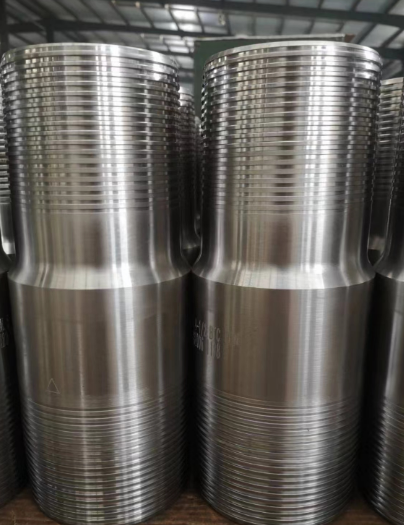Tubing Crossover: The Essential Connector for Well Integrity
In oil and gas operations, a tubing crossover is more than just a simple connector—it is a precision-engineered tool that ensures compatibility between tubing or casing components with different thread types, diameters, or grades. These crossovers are indispensable in situations where operational requirements demand transitioning from one connection specification to another without compromising the mechanical integrity of the string. Whether used during drilling, completion, or production, a tubing crossover ensures that different sections work together seamlessly, preventing costly downtime and maintaining the flow of operations.
Versatility in Wellbore Operations
Crossover subs are specialized short sections of pipe designed to adapt one connection type to another. They are commonly used to join drill pipe to drill collars, connect casing to tubing, or integrate specialized downhole tools into the string. Manufactured from high-strength alloy steel or corrosion-resistant materials, crossover subs are built to handle the extreme torque, pressure, and abrasive conditions encountered in the wellbore. Available in a wide range of thread profiles, they can be API-standard or customized to match premium connections. Their versatility makes them a staple in both onshore and offshore drilling programs.
Sealing the End of the Line
A bull plug is a solid plug used to cap the open end of a casing, tubing, or pipe string. By providing a leak-tight seal, it prevents fluid or gas from escaping when the string is not in use or during certain well operations. Bull plugs can be externally or internally threaded, depending on the connection requirements, and are typically made from the same grade of material as the pipe string to ensure strength compatibility. In addition to oilfield applications, bull plugs are also used in industrial piping systems for temporary or permanent sealing.

What Is a Bull Plug and Why Is It Important?
In simple terms, a bull plug is the final barrier at the end of a tubular string. Its primary function is to close off the flow path and protect internal threads from contamination or damage. This is especially critical during well testing, abandonment, or maintenance operations where pressure control and cleanliness are paramount. A well-designed bull plug also ensures that no debris, mud, or moisture enters the pipe, which can prolong the lifespan of the equipment and prevent operational issues later.
Enhancing Safety and Performance with Quality Connections
The efficiency and safety of any oilfield operation depend on the quality of its connections. Tubing crossovers, crossover subs, and bull plugs all serve distinct yet complementary roles in ensuring that every component of the wellbore assembly fits and functions perfectly. Using precision-machined, API-certified components not only guarantees structural integrity under high loads and pressures but also helps operators avoid costly failures, non-productive time, and safety risks. Whether transitioning between different tubular specifications or sealing off unused sections, these components are key to keeping the well secure, productive, and efficient.
Tubing crossovers FAQs
What is the main difference between a tubing crossover and a crossover sub?
A tubing crossover generally refers to connectors used in completion strings, while a crossover sub is a more general term that can apply to drilling, completion, or other downhole operations.
Can a bull plug handle high-pressure conditions?
Yes, bull plugs are designed to withstand the same pressure ratings as the pipe string they are sealing, provided they are made to API or equivalent specifications.
Are crossovers reusable?
Many crossover subs and tubing crossovers can be reused if they remain undamaged and pass inspection; however, connections should be regularly checked for wear and thread integrity.
What materials are used to manufacture bull plugs?
Bull plugs are typically made from carbon steel, alloy steel, or stainless steel, depending on the pressure, temperature, and corrosive conditions of the application.
When should a crossover be used in tubing strings?
A tubing crossover should be used whenever there is a need to connect tubulars with different thread types, diameters, or material grades to ensure proper fit and mechanical integrity.
-
Tubing Crossover - API Compatible, Custom Sizes, In StockNewsNov.10,2025
-
Tubing Coupling | High-Strength, Leak-Proof Steel CouplingsNewsNov.10,2025
-
Wholesale API Threading Casing Coupling | API 5CT, Fast ShipNewsNov.10,2025
-
Pup Joint Supplier | API Certified, Custom, Quick ShipNewsNov.10,2025
-
Pup Joint Manufacturers | Precision Machined, Fast DeliveryNewsNov.10,2025
-
Tubing Coupling | Precision Steel, Leak-Proof, Fast DeliveryNewsNov.03,2025







